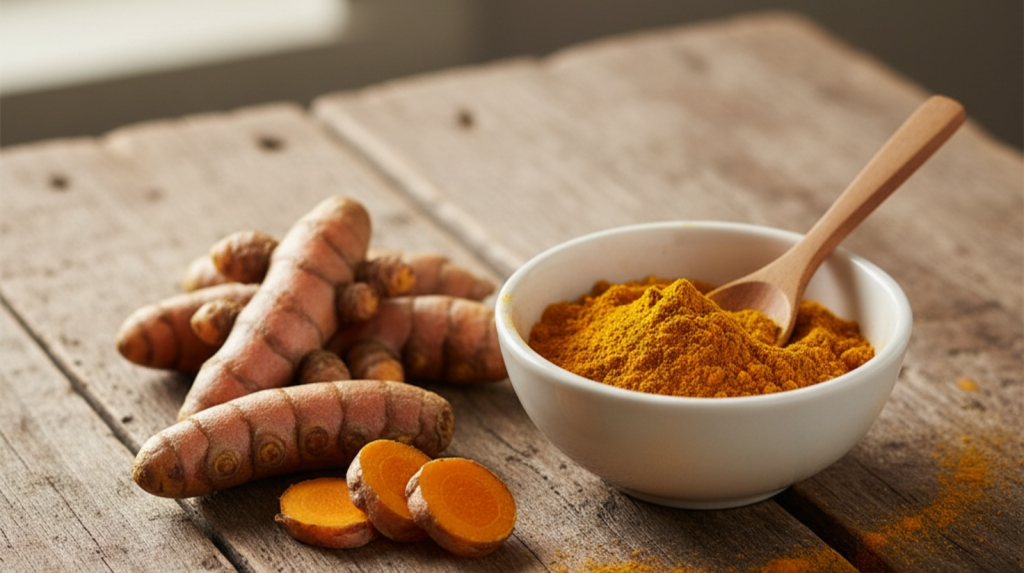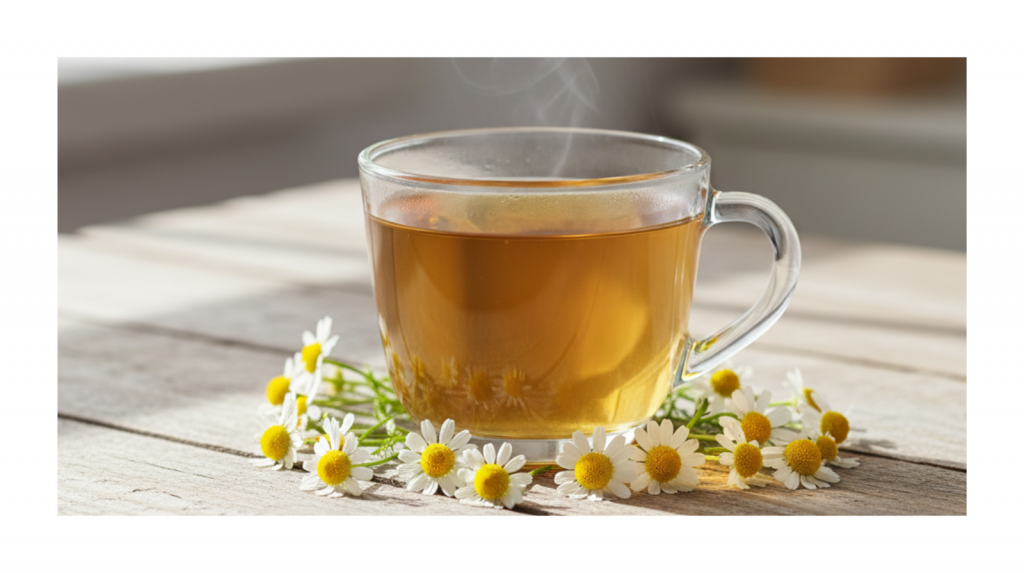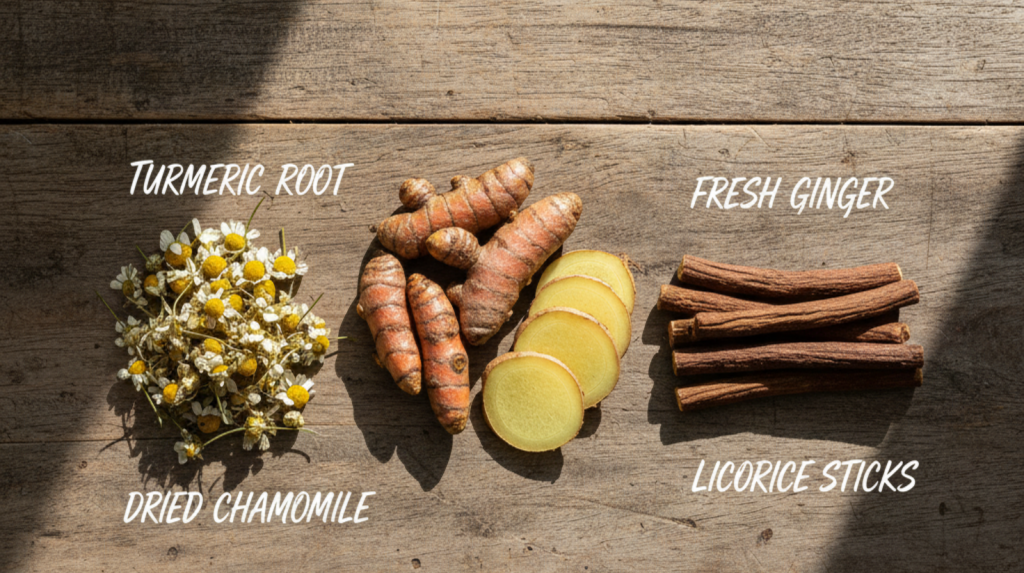From lifestyle tweaks to the turmeric twist—what really works when you want to rely less on PPIs
Many people in the UK take omeprazole every day. It is one of the most prescribed drugs. But doctors now warn about long-term use. We covered these concerns in our companion article: Omeprazole Warning: What You Need to Know About Long-Term PPI Use
Because of this, people ask about natural alternatives to omeprazole. Options do exist. For example, lifestyle changes, turmeric, melatonin, and herbs may all help.
Still, there is no single fix. What works for one may not work for another. So it is best to find a safe mix with GP advice.
Medical Disclaimer: This article is for information only. Do not stop or change medicine without speaking to your GP.
What Are the Best Natural Alternatives to Omeprazole?
There is no single pill that replaces omeprazole. But there are several options that may help.
- Lifestyle changes: diet, sleep, weight, smoking
- Supplements: turmeric, melatonin, probiotics
- Herbs: licorice, chamomile, slippery elm, ginger
- Therapies: acupuncture, stress reduction
- Medical support: tapering or H2 blockers with GP review
In other words, you may need to use more than one method.
Lifestyle Changes as Natural Alternatives to Omeprazole
The NHS and NICE say lifestyle should be the first step. In fact, it often reduces the need for medicine.
Diet
Some foods trigger reflux. These include spicy meals, fatty foods, coffee, alcohol, chocolate, citrus, peppermint, and sometimes dairy.
But changes may help. Smaller meals, more fiber, and less fat all support reflux control. The University of Wisconsin reports diet changes alone help some patients.
For example, try removing common triggers for two weeks. Track your symptoms. Then add foods back slowly.
Eating Habits
How you eat matters too. So avoid food three to four hours before bed. Eat slowly, chew well, and stay upright after meals.
Weight
Extra weight adds pressure to the stomach. As a result, even small weight loss can reduce reflux.
Sleep
Night-time reflux is common. Because of this, raising the head of the bed 4–6 inches is advised. Wedges or adjustable frames work better than pillows.
Smoking
Smoking weakens the stomach valve. So quitting often reduces symptoms.
Clothing
Tight belts and waistbands add pressure. In contrast, looser clothing may reduce reflux.
Exercise
Moderate exercise helps most people. But hard workouts straight after eating can make reflux worse.
If you want help building small, consistent habits around diet and lifestyle, check out our sister site Everyday Mastery — it’s focused on simple daily changes that stick
Supplements and Natural Alternatives to Omeprazole
Turmeric / Curcumin
A 2023 study in BMJ Evidence-Based Medicine tested turmeric against omeprazole. Both worked for indigestion.
- Dose: about 1000mg per day, split into four smaller doses
- Tip: add black pepper to improve absorption
So, turmeric may be a safe option for some. Read more about the benefits turmeric →
Curcumin study: BMJ Evidence-Based Medicine 2023 trial

Melatonin
Melatonin is best known as a sleep aid. But studies suggest it may also improve reflux.
- Trial dose: 2.5mg at bedtime
- Result: improved stomach valve function and reduced irritation
Still, more studies are needed before wide use.
Herbal Remedies as Natural Alternatives to Omeprazole
Herbs are often used for reflux. But quality can vary, so choose products with care.
Licorice (DGL): Coats the throat and stomach. May ease pain. Use chewable tablets before meals. Only use DGL type, not regular licorice.
Chamomile: Calms the stomach and reduces swelling. Drink as tea three to four times daily.
Ginger: Often used for sickness. So it may help reflux too. Drink as tea, eat fresh, or use capsules.
Slippery elm: Creates a soothing layer in the stomach. Mix powder with water after meals and at bedtime. Keep two hours away from other medicine. – Healthline have a great article on this
Marshmallow root: Works like slippery elm. Take as tea or capsules.
Iberogast: A liquid blend of nine herbs. Take 1ml three times a day.
Still, speak to your GP before adding herbs.

How to Stop PPIs with Natural Alternatives to Omeprazole
Stopping suddenly can cause acid rebound. So tapering is safer. The University of Wisconsin suggests a step-down plan.
- Prep (2 weeks): change diet, track symptoms.
- Taper (2–4 weeks): cut dose in half or use alternate days.
- Rebound (2 weeks): expect flare-ups. Herbs or H2 blockers may help if your GP agrees.
- Maintain: keep lifestyle changes and review progress.
In other words, slow steps work better than stopping overnight.
Other Natural natural alternatives to omeprazole – Options
Beyond tapering, extra supports may help. For example, stress control, probiotics, and acupuncture.
- Stress: mindfulness, breathing, gentle yoga
- Probiotics: may restore balance in the gut
- Acupuncture: some studies show better results than doubling PPI doses
Because of this, many people combine one or two of these with other methods.
See also: Gut bacteria and heart health →
FAQs
Is turmeric as effective as omeprazole?
Yes, one study showed similar results. But more research is needed.
Can I swap omeprazole for herbs?
No. So always taper with medical support.
How long until lifestyle changes help?
Usually two to four weeks. In fact, some people notice improvement earlier.
What if symptoms return?
Some people need PPIs long term. Still, cutting down use often improves overall care.
Final Thoughts
- PPIs are useful but often overused.
- Lifestyle is always the first step.
- Natural supports may help, but GP guidance is key.
- Combining methods works better than relying on one.

